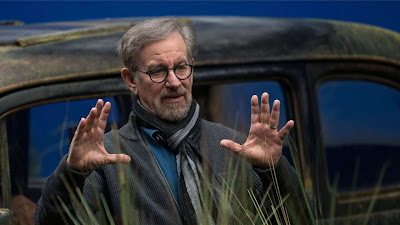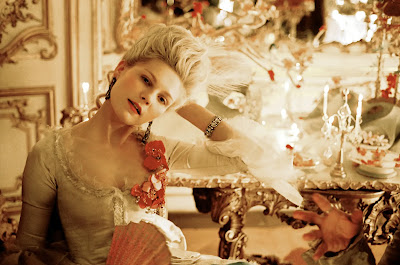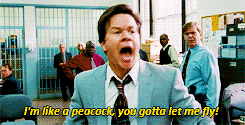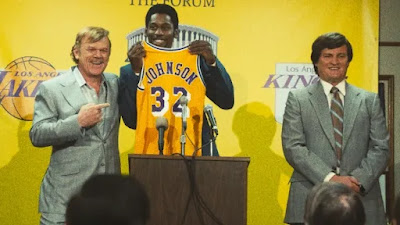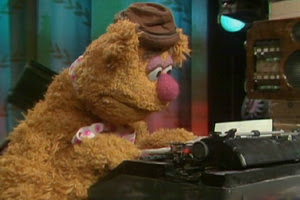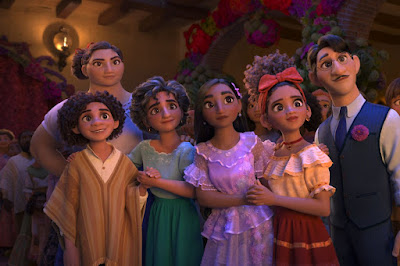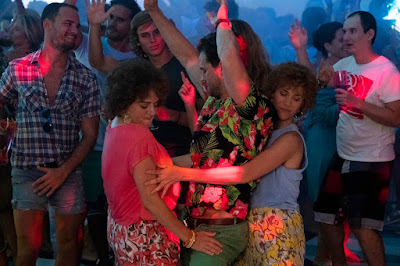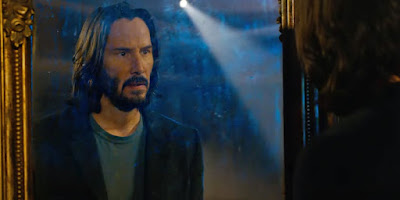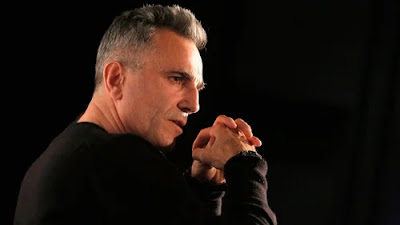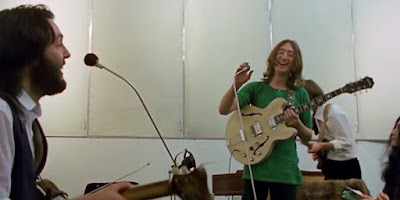“The bedrock of the plot is the dogged determination of the Bruce Willis character. Jack may be middle-aged, he may be tired, he may be balding, he may be a drunk, but if he’s played by Bruce Willis you don’t want to bet against him. He gets that look in his eye that says: It’s going to be a pain in the ass for me to do this, but I couldn't live with myself if I didn’t. I always I believe that more easily than the look that merely says: I will prevail because this is an action picture and I play the hero.”
That’s Roger Ebert writing about Bruce Willis in the 2006 thriller “16 Blocks”, but it’s also Roger Ebert perfectly summarizing the Bruce Willis archetype in a single paragraph. So many actors these days, they just prevail in action pictures because they play the heroes. But Willis, he was always the embodiment of his bare feet in the first “Die Hard”, a manifestation of Russell Crowe’s incredulous, irritated line reading in “The Insider”, the one where he says, “What kind of shit is this?” Willis’s characters were always metaphorically dragging their bare feet across broken glass, looking at their own bloody toes and the whole surrounding mess, wondering, “What kind of shit is this?” I mean, it was good Willis starred in the seminal “Die Hard” because, well, obviously. But it was also good Willis starred in the seminal “Die Hard” because who else was going to make you believe “the same shit happen(ed) to the same guy twice” in “Die Hard 2” other than Willis? Dulles Airport was taken hostage exactly one Christmas Eve after Nakatomi Tower was taken hostage? In Willis’s hands that wasn’t just movie blockbuster convenience; that was life, in all its unlucky misery. He could carry roles, to paraphrase Ebert again, this time writing about Willis’s “Tears of the Sun,” “that would destroy others.”
I once wrote a piece for the late Anomalous Material where I took this Rachel Weisz line from “The Whistleblower”, this line where she says, “I don’t want a scandal, I’m just doing my job”, and then theorized what other Hollywood actors were most equipped to sell it. Bruce Willis, as I recollect, was #2 on the list. And though I sort of described how other actors might say it, I just said something to the effect of, you know exactly how Bruce Willis would say this line. And you would; you do! You can hear it right now, can’t you?! You don’t need me to explain it! Now that’s not to suggest he was always doing the same thing. Far from it. Within his pronounced Bruce Willis archetype, he could make myriad modulations to best fit the material.
In “Pulp Fiction”, he still allowed a bit of a boxer’s bravado to peek through here and there, transforming The Gold Watch into Butch Coolidge’s rope-a-dope against the world. In “Moonrise Kingdom”, he seemed to be playing to that old Springsteen observation about holding onto your idealism after you lose your innocence, and struggling to win that battle. In “Unbreakable” he transforms his weariness into reticence, someone who is usually so big on screen becoming so small...until he becomes larger than life. In “Ocean’s Twelve,” my beloved, misunderstood “Ocean’s Twelve,” he’s playing himself but he’s not, crucially, smartly, playing a parody of himself. He’s playing himself as a longtime friend of Julia Roberts who’s helping expose the Julia Roberts character who is masquerading as Julia Roberts (it’s complicated), becoming a private eye on the fly, his smirk communicating, “I’m on to you.”
But look at me, writing in the past tense, like Bruce Willis has passed on. He has not passed on, but his family announced yesterday that he’s stepping away from acting on account of aphasia. “Aphasia,” the Mayo Clinic tells us, is a condition that robs you of the ability to communicate. It can affect your ability to speak, “write and understand language, both verbal and written.” Well, don’t that just beat all. Bruce Willis, master of the pained facial expression, virtuoso of the weary verbal expression, both of them taken away. What kind of shit is this? Life, I guess, and just proof that in this life you never really know what might be going on with someone. Willis became the butt of jokes in the last few years for an overstuffed IMDb page littered with unfamiliar titles. Just this past weekend the Razzies, the pointless, perspective-less, played-out Razzies awarded the Worst Performance by Bruce Willis in a 2021 Movie. (The Razzies are apparently discussing whether they will rescind this award. Rescind yourselves.)
Maybe, in the end, Willis was just making as many movies as he could to make as much money as he could to ensure his family was set up, like Ulysses S. Grant putting down his memoirs before the throat cancer came to collect. Maybe, in the end, Willis was just making as many movies as he could because he knew...this was it. Maybe if his cognitive decline was an open secret within the industry, as many seemed to suggest, this was long overdue, and maybe prompts the question why it had not already happened. But that is all speculation and none of my business. Maybe we just shouldn’t judge actors by their IMDb credits.








